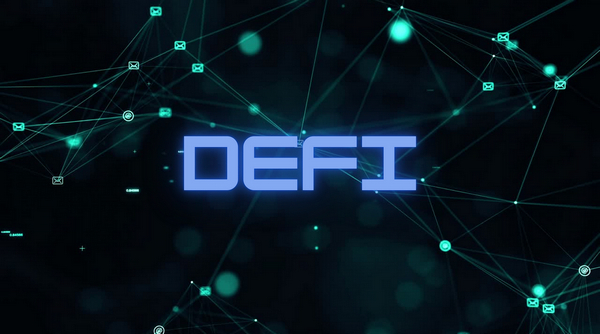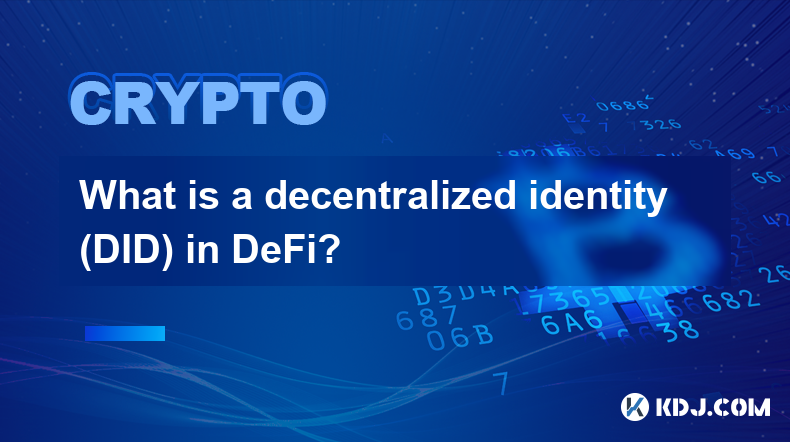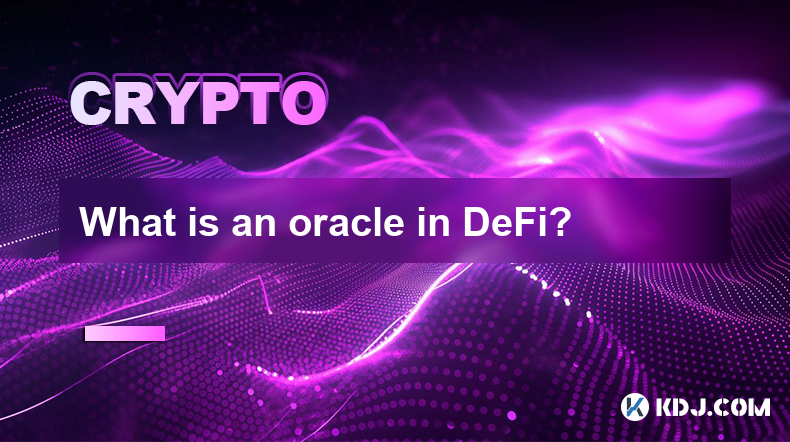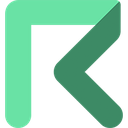-
 Bitcoin
Bitcoin $83,858.0795
-3.83% -
 Ethereum
Ethereum $1,883.4323
-6.19% -
 Tether USDt
Tether USDt $0.9994
-0.05% -
 XRP
XRP $2.1893
-6.34% -
 BNB
BNB $618.7743
-3.35% -
 Solana
Solana $129.9486
-6.72% -
 USDC
USDC $0.9997
-0.03% -
 Dogecoin
Dogecoin $0.1801
-5.82% -
 Cardano
Cardano $0.7006
-4.89% -
 TRON
TRON $0.2338
-0.23% -
 Toncoin
Toncoin $3.8125
-2.77% -
 Chainlink
Chainlink $14.1660
-8.58% -
 UNUS SED LEO
UNUS SED LEO $9.7038
-0.64% -
 Stellar
Stellar $0.2735
-4.54% -
 Avalanche
Avalanche $19.9090
-9.67% -
 Sui
Sui $2.5180
-9.27% -
 Shiba Inu
Shiba Inu $0.0...01317
-6.19% -
 Hedera
Hedera $0.1821
-6.16% -
 Polkadot
Polkadot $4.2863
-6.96% -
 Litecoin
Litecoin $86.8045
-6.38% -
 MANTRA
MANTRA $6.2834
-3.17% -
 Bitcoin Cash
Bitcoin Cash $307.0240
-4.93% -
 Bitget Token
Bitget Token $4.7937
-4.07% -
 Pi
Pi $0.8243
1.13% -
 Dai
Dai $0.9999
-0.01% -
 Ethena USDe
Ethena USDe $0.9988
-0.04% -
 Hyperliquid
Hyperliquid $13.4017
-7.38% -
 Monero
Monero $216.8838
-2.89% -
 Uniswap
Uniswap $6.1273
-9.78% -
 Aptos
Aptos $5.5377
-7.31%
Which company is the DeFi wallet?
MetaMask, an open-source cryptocurrency wallet, facilitates secure storage and management of digital assets on various blockchains.
Oct 01, 2024 at 09:06 am

- MetaMask
MetaMask is an open-source, cryptocurrency wallet that enables users to store and manage their digital assets. It supports multiple blockchains, including Ethereum, Polygon, and Binance Smart Chain, and allows users to connect to decentralized applications (dApps) built on these networks. MetaMask has a user-friendly interface and it can be used as a browser extension or mobile application.
- Trust Wallet
Trust Wallet is a non-custodial, mobile-based cryptocurrency wallet that supports a wide range of tokens and blockchains. It offers various features such as secure storage, stake support, and dApp integration. Trust Wallet has a straightforward user interface and it has its own native token, TWT, which is used for transaction fees and other utilities within the platform.
- Exodus
Exodus is a desktop and mobile cryptocurrency wallet that supports over 150 assets and 100 blockchains. It has an intuitive user interface and offers features such as price tracking, portfolio management, and built-in exchange. Exodus also provides educational resources and email support for its users.
- Binance Chain Wallet
Binance Chain Wallet is an official wallet offered by Binance, one of the leading cryptocurrency exchanges. It supports Binance Coin (BNB), Binance Smart Chain (BSC) tokens, and other digital assets. The wallet allows users to seamlessly interact with the Binance ecosystem, including trading, staking, and decentralized finance (DeFi).
- Coinbase Wallet
Coinbase Wallet is a non-custodial cryptocurrency wallet provided by Coinbase, another popular cryptocurrency exchange. It supports a wide range of digital assets and enables users to store, send, and receive cryptocurrencies. Coinbase Wallet has a user-friendly design and it offers self-custody, meaning users have complete control over their private keys.
- Ledger Nano X
Ledger Nano X is a hardware cryptocurrency wallet that offers secure storage for digital assets. It supports over 1,800 coins and tokens and has several security features such as a built-in display, Bluetooth connectivity, and a secure OS. Ledger Nano X is a popular choice for experienced cryptocurrency holders who prioritize security.
- Trezor Model T
Trezor Model T is another hardware cryptocurrency wallet that provides advanced security features such as Shamir Backup, U2F support, and a slot for micro SD cards. It supports over 1,200 coins and tokens and has a large, full-color display for ease of use. Trezor Model T is a suitable option for users who value privacy and top-notch security measures.
Disclaimer:info@kdj.com
The information provided is not trading advice. kdj.com does not assume any responsibility for any investments made based on the information provided in this article. Cryptocurrencies are highly volatile and it is highly recommended that you invest with caution after thorough research!
If you believe that the content used on this website infringes your copyright, please contact us immediately (info@kdj.com) and we will delete it promptly.
- As Bitcoin sways like a ship in a macroeconomic storm, the threshold of $84,000 becomes a symbol of resistance.
- 2025-03-29 03:40:12
- GameStop plans to close more stores and turn its attention to cryptocurrency as the company begins investing in Bitcoin.
- 2025-03-29 03:40:12
- US President Donald Trump Plans to Meet with El Salvador President Nayib Bukele at the White House Next Month
- 2025-03-29 03:35:12
- Solana (SOL) Navigates a Pivotal Decision Point That Could Determine Its Next Major Move
- 2025-03-29 03:35:12
- The recent scrutiny of Cardano's native token, ADA, raises critical questions about its viability amidst escalating competition in the crypto space.
- 2025-03-29 03:30:12
- XploraDEX Is Witnessing a Breakout Moment as Investor Enthusiasm for the $XPL Token Soars
- 2025-03-29 03:30:12
Related knowledge

What is a decentralized identity (DID) in DeFi?
Mar 23,2025 at 11:57am
Key Points:Decentralized Identifiers (DIDs) offer a self-sovereign approach to digital identity management, crucial for DeFi's privacy and security needs.DIDs operate independently of centralized authorities, empowering users with control over their data.Integrating DIDs into DeFi applications enhances user privacy, reduces reliance on intermediaries, a...

What does "composability" mean in DeFi?
Mar 14,2025 at 12:36pm
Key Points:Composability in DeFi refers to the ability of different decentralized finance (DeFi) protocols to interact and combine seamlessly, creating novel financial products and services.This interoperability is a core tenet of the DeFi ecosystem, fostering innovation and efficiency.Understanding composability requires exploring its mechanisms, benef...

What is token economics in DeFi?
Mar 14,2025 at 03:20am
Key Points:Token economics in DeFi defines how tokens are used to incentivize and govern decentralized finance (DeFi) protocols.It encompasses token utility, distribution mechanisms, and economic models designed to ensure sustainability and growth.Understanding token economics is crucial for evaluating the long-term viability and potential risks of DeFi...

How are transaction fees calculated in DeFi?
Mar 14,2025 at 04:25am
Key Points:DeFi transaction fees vary significantly depending on the specific protocol, network congestion, and the complexity of the transaction.Gas fees, a crucial component, are paid in the native token of the blockchain (e.g., ETH on Ethereum).Factors influencing gas fees include the type of transaction, data size, and network demand.Protocols often...

What is an oracle in DeFi?
Mar 22,2025 at 06:50am
Key Points:Oracles bridge the gap between on-chain and off-chain data in DeFi, providing real-world information to smart contracts.Different oracle types exist, each with its own strengths and weaknesses, including centralized, decentralized, and hybrid oracles.Security and reliability are crucial concerns for oracles, as vulnerabilities can lead to sig...

What is a cross-chain bridge? What is its role in DeFi?
Mar 14,2025 at 10:00am
Key Points:Cross-chain bridges facilitate the transfer of assets between different blockchains.They are crucial for DeFi's interoperability, allowing users to access diverse applications and liquidity pools across various networks.Several types of cross-chain bridges exist, each with its own security and scalability trade-offs.Understanding the risks as...

What is a decentralized identity (DID) in DeFi?
Mar 23,2025 at 11:57am
Key Points:Decentralized Identifiers (DIDs) offer a self-sovereign approach to digital identity management, crucial for DeFi's privacy and security needs.DIDs operate independently of centralized authorities, empowering users with control over their data.Integrating DIDs into DeFi applications enhances user privacy, reduces reliance on intermediaries, a...

What does "composability" mean in DeFi?
Mar 14,2025 at 12:36pm
Key Points:Composability in DeFi refers to the ability of different decentralized finance (DeFi) protocols to interact and combine seamlessly, creating novel financial products and services.This interoperability is a core tenet of the DeFi ecosystem, fostering innovation and efficiency.Understanding composability requires exploring its mechanisms, benef...

What is token economics in DeFi?
Mar 14,2025 at 03:20am
Key Points:Token economics in DeFi defines how tokens are used to incentivize and govern decentralized finance (DeFi) protocols.It encompasses token utility, distribution mechanisms, and economic models designed to ensure sustainability and growth.Understanding token economics is crucial for evaluating the long-term viability and potential risks of DeFi...

How are transaction fees calculated in DeFi?
Mar 14,2025 at 04:25am
Key Points:DeFi transaction fees vary significantly depending on the specific protocol, network congestion, and the complexity of the transaction.Gas fees, a crucial component, are paid in the native token of the blockchain (e.g., ETH on Ethereum).Factors influencing gas fees include the type of transaction, data size, and network demand.Protocols often...

What is an oracle in DeFi?
Mar 22,2025 at 06:50am
Key Points:Oracles bridge the gap between on-chain and off-chain data in DeFi, providing real-world information to smart contracts.Different oracle types exist, each with its own strengths and weaknesses, including centralized, decentralized, and hybrid oracles.Security and reliability are crucial concerns for oracles, as vulnerabilities can lead to sig...

What is a cross-chain bridge? What is its role in DeFi?
Mar 14,2025 at 10:00am
Key Points:Cross-chain bridges facilitate the transfer of assets between different blockchains.They are crucial for DeFi's interoperability, allowing users to access diverse applications and liquidity pools across various networks.Several types of cross-chain bridges exist, each with its own security and scalability trade-offs.Understanding the risks as...
See all articles






















































































